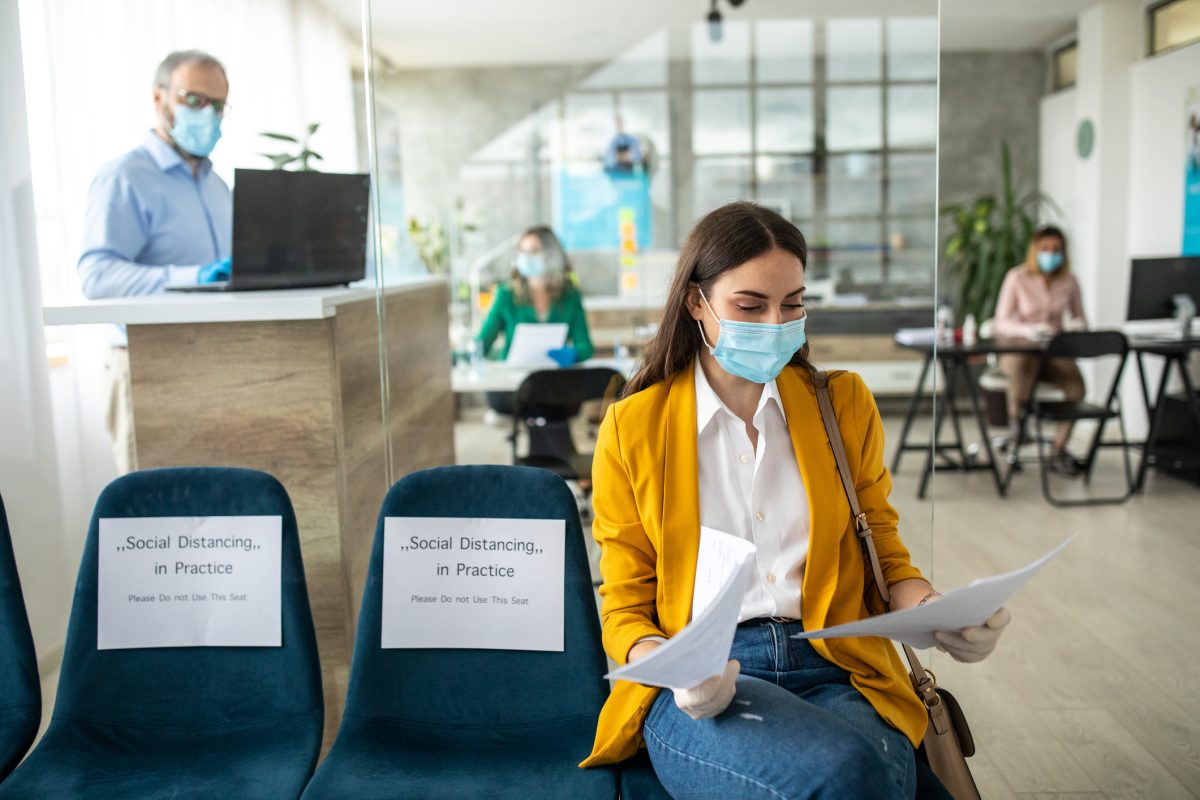Many of us are wondering what future workplaces will look like. The effects of the COVID-19 pandemic ripple into virtually all aspects of businesses. Offices, manufacturing facilities, and headquarter locations are undergoing massive transformations that would have been almost unthinkable in the not-too-distant past. Beyond instituting policies for wearing a face mask and socially distancing, a seismic shift in how we actually work has altered our cities and our way of life. What will work look like a few years from now?
Larger U.S. Cities May Not be Part of Future Workplaces
In the latter half of 2020, surging COVID cases have led employers and employees to question whether they can return safely to workplaces. Many states and cities are reinstituting draconian measures meant to help slow the spread of the virus.
These restrictions are often seen as harmful to small businesses such as restaurants, salons, and gyms. However, a bigger issue looms as an even greater threat to small businesses: employees not returning to larger U.S. cities to work at all. A number of recent trends will result in changes to how companies will operate as an entity.
Central city business locations with hundreds or thousands of employees in close proximity often results in tremendous synergy and effective teamwork, as well as reduced overhead costs and effective communication. However, a return to this model remains elusive without an effective strategy to eliminate all risks of COVID transmission. With the rising number of COVID cases, many companies are encouraging employees to continue working remotely.
Are Single-Family Homes Going to be the Future Workplaces?
Many companies have expanded their work from home and work from anywhere policies to promote remote work during the pandemic. In turn, several employees have adjusted well to working from home, and in some cases productivity has increased. Other employees have learned about lower-cost cities and suburbs and have made the move. As a result, city dwellers on the move are helping to fuel a boom in suburban housing prices.
Questions still remain about such topics as remote worker expenses and how to effectively recruit talent in the “new normal” during and post-COVID-19. However, both employees and employers are adjusting to the new normal with new ways of doing business. For example, the Zoom video platform saw a tremendous increase in its subscriber base and growth in revenue due to the pandemic. For employees working from home, video has become their lifeline to work and other employees. Companies, however, are still missing all the benefits a centralized workforce provides. Thus, single-family homes are most likely a temporary phenomenon on the path toward future workplaces.
Are Suburbs Going to be the Future Workplaces?
With so many employees working from home, and many others relocating to suburbs and smaller cities to gain more space and enhance their lifestyle, it seems suburbs are poised to become the future workplaces.
City dwellers who do not want to reside in large cities now have more disposable income to buy a home or condominium. The National Association of Home Builders reports that “Suburbs of medium-sized cities posted the greatest single-family gains in the third quarter, with a 15% growth rate over the last four quarters.” While these former large-city residents may ultimately face a salary reduction due to a lower cost of living in their new location, overall the benefits of suburban living appear to outweigh any cost of living adjustment.
Companies can easily Capitalize on the Suburban Trend for Their Future Workplaces
Companies located in larger cities can easily develop their future workplaces with a move to a suburban area. By locating in the areas where their employees live, companies will gain many benefits. Employees living in close proximity often share several common interests and activities. For example, children may attend the same schools. Also, there may be shared membership in local organizations and participation in local events. These interests and activities may help build the camaraderie that enhances teamwork and corporate identity.
Making the Move to Phoenix and its Suburban Cities
Some companies are looking to move from larger cities to smaller cities with thriving suburbs. This will allow all employees to experience a better quality of life and lower cost of living. For example, the Greater Phoenix Economic Council reports that 25 companies are looking to relocate from the state of California to the Phoenix metropolitan area.
By relocating to a suburban area, companies can develop new facilities better designed to handle issues relating to pandemic requirements. Larger spaces, superior ventilation and filtration, and upgrading to the latest technologies will create an environment more conducive to working safely together as one corporate entity.
What Does This Mean for Larger Cities?
Are these trends due to the pandemic going to lead to a decline in larger cities? Various factors always lead to a dynamic working environment. For example, development of a successful COVID-19 vaccine could lead to full reopening of larger cities for companies, employees, and visitors.
Also, the draw of larger cities for the wealth of amenities they offer is hard to replace. After all, it would be impossible to replicate New York City’s Carnegie Hall or Washington D.C.’s Kennedy Center in some other location. And there is no other place in the U.S. like the French Quarter of New Orleans. The culture, arts, and vibe of larger cities is impossible to find anywhere else. Also, larger cities are often home to important functions such as government offices and financial markets. These points will help larger cities transform into desirable future workplaces in the long run.
Larger cities may become central hubs for corporate headquarters, while the majority of non-HQ functions may be situated in smaller cities and suburbs. Office buildings in larger cities can be retrofit to accommodate a smaller number of headquarters employees and ensure workplace safety.
What Should Companies do?
Companies should examine their need for office, manufacturing, and other spaces. They should also look into where employees are currently located. This information will help companies determine if they can leverage a move to a new location for their future workplaces. As a result, they might recapture critically important synergies and corporate identity among employees. They should also examine important headquarters functions. For example, companies might look at functions with an eye towards locating closer to important entities and markets. These might include financial markets, government entities, and regulatory bodies important to corporate initiatives.
Companies should work with a Relocation Management Company (RMC) that has knowledge and experience in managing relocation and group moves to future workplaces. Qualified RMCs will help companies understand the issues relating to current trends. They can also share valuable resources to guide policy decisions that follow industry best practices.
Conclusion
GMS’ team of corporate relocation experts has helped thousands of our clients with their relocation programs and group moves. Our team can help your company understand the issues relating to future workplaces. We can also help your company consider the impact of work from home and work from anywhere policies on compensation issues as well as remote worker expenses.
GMS was the first relocation company to register as a “.com.” The company also created the first online interactive tools and calculators, and revolutionized the entire relocation industry. GMS continues to set the industry pace as the pioneer in innovation and technology solutions with its proprietary MyRelocation® technology platform.
New SafeRelo™ COVID-19 Knowledge Portal
GMS recently launched its new SafeRelo™ COVID-19 Knowledge Portal featuring a number of helpful resources including:
- Curated selection of news and articles specific to managing relocation programs and issues relating to COVID-19
- Comprehensive guide to national, international, and local online sources for current data
- Program/Policy Evaluation (PPE) Tool for instant relocation policy reviews
Contact our experts online to learn more about how your company might leverage current trends to develop its future workplaces, or give us a call at 800.617.1904 or 480.922.0700 today.
We're Here to Help! Request a Courtesy Consultation
Are you ready to talk to a Mobility Pro? Learn how GMS can optimize your mobility program, enhance your policies to meet today’s unique challenges, receive an in-depth industry benchmark, or simply ask us a question. Your Mobility Pro will be in touch within 1 business day for a no-pressure, courtesy consultation.




